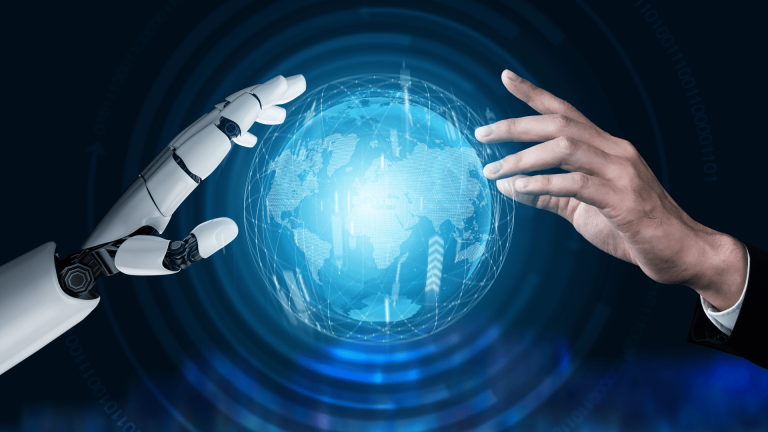
Category:
Blog » Sin categorizar » Technology: Evolution of Artificial Intelligence (AI)
In the beginning, Artificial Intelligence revolved mainly around symbolic AI, which aimed to provide machines with human-like logic and reasoning. This was done by using formal logic and symbols to represent knowledge and solve problems. Researchers believed that by encoding human knowledge and rules into computer programs they could create intelligent systems.
Despite initial optimism, the field of AI suffered a major setback during the 1970s and 1980s, known as the “AI Winter.” Progress in AI research came to a halt and many believed that AI had over-promised and under-delivered. Funding for AI projects declined and the field lost hope.
The growth point for AI came with the resurgence of interest in the 1990s, driven mostly by advances in machine learning. Machine learning algorithms allowed computers to learn from data and improve their performance over time. This breakthrough allowed new life to be breathed into the field of Artificial Intelligence.
One of the most transformative advances in Artificial Intelligence has been the rise of deep learning and neural networks. Inspired by the structure of the human brain, neural networks are composed of interconnected nodes that process information in layers. Deep learning algorithms driven by neural networks have excelled in tasks such as image recognition, natural language processing and even playing complex games.

AI facilitates the creation of optimized and customized clips for global audiences, automates editing and content creation with GEN AI and enhances the user experience with accurate recommendations and predictive AI predictive analytics with artificial intelligence.
With the help of Artificial Intelligence, diagnosis and treatment, drug discovery and patient care can become more accessible, more affordable and even more efficient.
AI algorithms identify patterns in real time to prevent fraud, accurately assess credit risks and automate complex processes, such as detecting anomalies in financial transactions. anomalies in financial transactions.
AI solutions drive personalization of shopping experiences, optimize inventory management and improve supply chain logistics. This enables companies to respond quickly to consumer demands. More information here.
In the manufacturing industry, AI optimizes production processes to reduce costs and waste, improves quality control with computer vision systems, and enables predictive maintenance to avoid outages. Explore the details here.
AI accelerates drug discovery, automates production processes and improves traceability in the supply chain, as well as personalizing treatments for patients. See how it works here.
The future of AI looks incredibly promising. AI is expected to continue its rapid evolution, with advances in quantum computing, learning and AI integrated with ethics becoming increasingly prominent. The potential applications of AI seem limitless, from combating climate change to future space exploration.
AI has come a long way. Its impact on a variety of industries is undeniable, and the future holds even greater possibilities. As AI continues to evolve, it will shape our world in ways we can’t even imagine right now.
If you want to know how artificial intelligence can be the catalyst for change in your industry, don’t hesitate to contact us at!